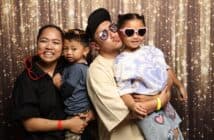Parenting a kindergarten aged child is a pot mixed of wonder, challenges, and growth. Kindergarten marks the beginning of formal education as your child develops important skills while making friendships and discovering the world with endless curiosity. While parenting a kindergarten child may bring many joys along with unique obstacles, it does require having careful consideration and targeted strategies. This blog will look at some insights and advice for raising confident, well-rounded kindergarteners.
Understanding the World from a Kindergartener’s Eyes
Children aged four to six are in an exciting stage where they’re learning the balance between independence and guidance, quickly picking up on social skills as well as academic concepts. At this stage, their personality starts to become more distinct, and they become adventurous explorers of their environment. Parenting through this phase requires striking an effective balance between encouraging independence and offering consistent support. Kindergartners thrive at this stage in life by following routines but also welcoming unexpected moments of spontaneity. At this age, kindergartners work on honing motor skills, processing emotions, and building relationships with others. Knowing these developmental benchmarks allows parents to adapt strategies specifically tailored towards their child.
Creating a Supportive Home Environment
Every kindergartener deserves a safe, loving, and stimulating home environment that promotes their development. Creating communication, creativity, and consistency within your household environment can have a powerful influence on your child’s overall progress and growth.
Establish Routines
Regular routines give children a sense of security and predictability. Morning rituals, homework time, playtime and bedtime rituals not only keep children on schedule but also help form discipline and responsibility.
Encourage Open Communication
Strive to form an environment in which your child feels heard. Listen closely as they tell stories of recess or their favorite part of school day. Engaged conversations help build trust between parent and child while increasing their confidence levels.
Designate Learning Spaces
Establishing specific areas for homework, art projects or quiet reading can help kindergarteners form associations between specific spaces and activities that increase focus and productivity.
Nurturing Social and Emotional Intelligence
Kindergarten is more than learning how to count or recognize letters. It’s also a very important time for nurturing social and emotional intelligence in children. Helping your child manage emotions, understand perspectives, and form relationships is part of this stage’s growth.
Teach Emotional Regulation
Start conversations about emotions by labeling feelings and providing strategies such as deep breathing or using words to express frustration. Emotional regulation is a skill they will benefit from for years.
Model Positive Social Interactions
Children learn by watching adults behave. You can set an excellent example by consistently showing kindness, manners and empathy toward others. For instance by showing gratitude or resolving conflicts peacefully. These are all valuable life skills they’ll carry into adulthood.
Support Peer Relationships
Help your child build strong peer relationships by giving them opportunities to practice sharing, taking turns and managing conflicts in an informal setting through regular playdates or group activities.
Encourage a Love of Learning
Kindergarten provides an invaluable opportunity to form a life-long love for learning. Parents play a huge role by making education fun in their daily life.
Celebrate Curiosity
Be enthusiastic in answering all of your child’s “why” questions with an eager attitude. Their curiosity is a huge component of learning. Use these moments to promote exploration and critical thought.
Reading Together Regularly
Engaging your child in reading regularly introduces them to new ideas, develops literacy skills and strengthens bonds between you and them. Make reading together part of their daily routine. Add books that align with their interests as part of this habitual reading ritual. There are many ways on how to help kindergarteners read, find one that best works for you.
Create Hands-On Learning Experiences
Engaging children’s senses through hands-on experiences such as cooking, gardening and building with blocks is an effective way for them to explore concepts interactively and grasp them more fully.
Managing Kindergarten Challenges
Kindergarten presents its own set of challenges, from separation anxiety to meeting academic expectations. Addressing them head on can make this transitional period smoother for both parent and child.
Ease Separation Anxiety
Transitioning into school life can be tough for some children who are unfamiliar with being away from home for long stretches of time. A special handshake or encouraging note in their lunchbox may offer comfort during this transitional phase.
Avoid Over Scheduling
While organized activities are beneficial, too much may become exhausting for kindergarteners. Make sure they have ample free play and relaxation time in their schedules to recharge themselves.
Stay Patient with Setbacks
Struggles with reading, writing or behavioral challenges aren’t unusual. Provide encouragement over criticism, and focus on their accomplishments over time.
The Kindergarten Parent-Teacher Partnership
Building an effective partnership between your child’s teacher and yourself can significantly advance your child’s development. Open communication ensures you and the teacher remain aligned on goals and milestones to support success for your children.
Attend Meetings and Events
Parent-teacher conferences, school events and volunteer opportunities provide insights into your child’s education while deepening relationships between educators and parents.
Share Observations
If you observe your child excelling or struggling in one area at home, sharing this knowledge with their teacher can create an integrated approach to development.
Be Proactive
Keep in the loop of the school policies, curriculum changes and any concerns. An active involvement shows your child that their education is an absolute top priority.
Participate in School Activities
By attending parent-teacher conferences, open houses, and extracurricular events at your child’s school, demonstrates your dedication to their education while giving you the chance to interact with teachers and staff members in an informal setting.
Conclusion
Parenting a kindergarten kid can be both rewarding and challenging, offering many opportunities to help form their growth and learning. By creating open communication channels between the parent and child, staying involved with school life and creating a nurturing home environment, you set the groundwork for their future success. Don’t forget, this time should be used as an opportunity for exploration, curiosity, and growth for both of you. Approach this chapter with patience and positivity so you all can thrive during this exciting journey.




